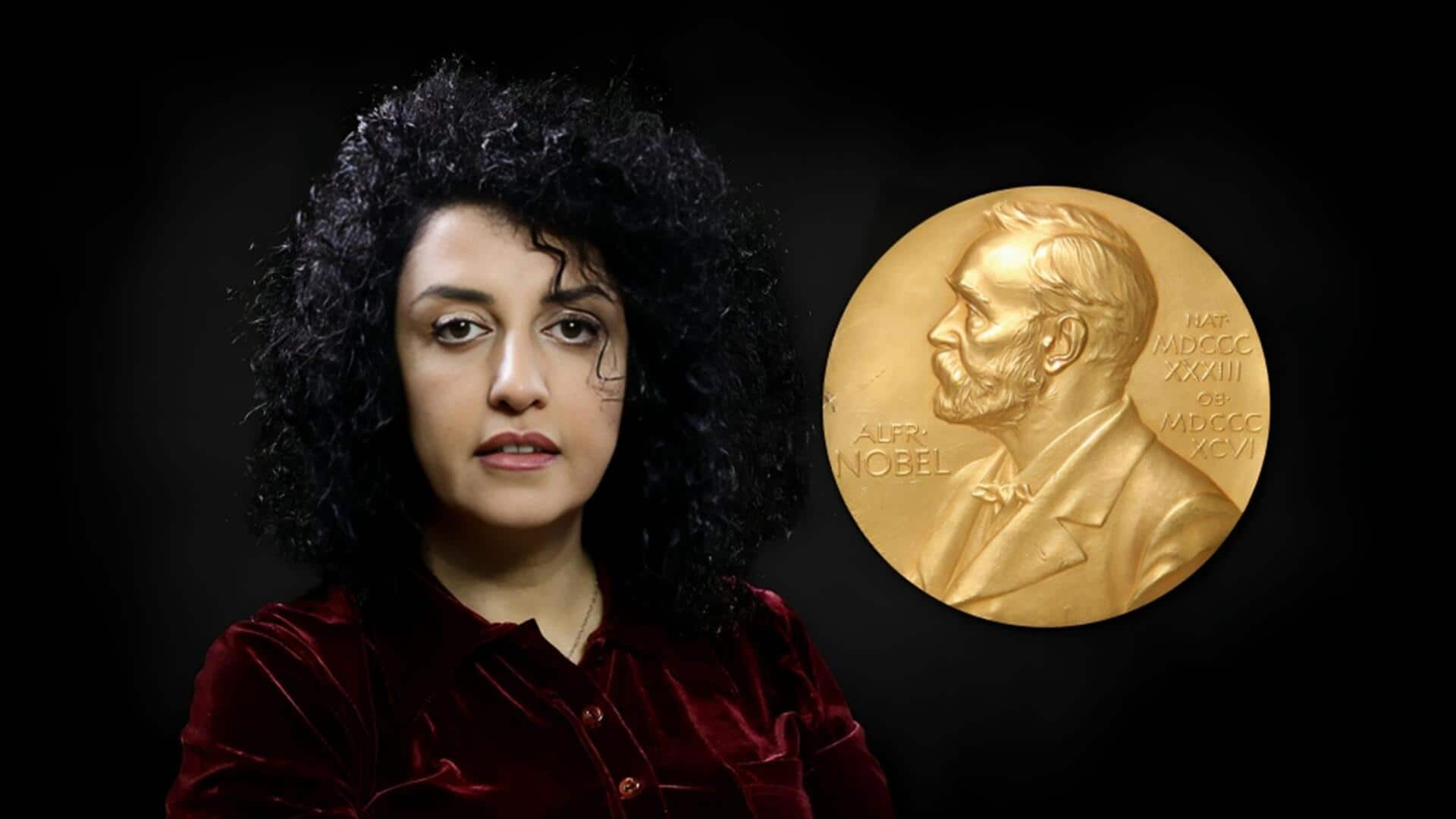
Jailed Iranian activist Narges Mohammadi wins Nobel Peace Prize
What's the story
Iranian activist Narges Mohammadi (51) has won this year's Nobel Peace Prize for fighting against women's oppression in Iran and for promoting human rights at large. Notably, Mohammadi is serving a 10-year sentence in Tehran's Evin Prison for "spreading anti-state propaganda." The award was given to Belarusian human rights advocate Ales Bialiatski by the Royal Swedish Academy last year.
Context
Why does this story matter?
This comes after massive anti-government protests in Iran led by women, which started last year following the death of Mahsa Amini (22) in the custody of Iran's infamous morality police. The protests were primarily against the imposition of the hijab, or head covering, mandated by the conservative Islamic government following the 1979 Islamic Revolution, in which the liberal, pro-Western monarchy was overthrown.
Twitter Post
Here's the official announcement
BREAKING NEWS
— The Nobel Prize (@NobelPrize) October 6, 2023
The Norwegian Nobel Committee has decided to award the 2023 #NobelPeacePrize to Narges Mohammadi for her fight against the oppression of women in Iran and her fight to promote human rights and freedom for all.#NobelPrize pic.twitter.com/2fyzoYkHyf
Struggle
Her brave struggle comes with tremendous personal costs: Nobel Institute
"Her brave struggle has come with tremendous personal costs. Altogether, the regime has arrested her 13 times, convicted her five times, and sentenced her to...31 years in prison and 154 lashes," the Nobel Institute said. This year's Peace Prize also recognizes the hundreds of thousands of individuals who protested the theocratic regime's gender policies of discrimination and oppression targeting women.
Details
More about Mohammadi
Mohammadi's activism to bring about grassroots change through education, advocacy, and civil disobedience spans 30 years. Despite being imprisoned, she organized protests during last year's protests, wrote essays, and conducted awareness workshops for women inmates. Her husband and fellow activist, Taghi Rahmani, and her twin kids, Ali and Kiana, live in exile in France. She hasn't met her kids in eight years.
Second
Mohammadi is Shirin Ebadi's protege
Mohammadi is the second Iranian woman to be granted the Nobel Peace Prize. Human rights lawyer Shirin Ebadi, Mohammadi's longtime mentor and colleague, won the award in 2003. They both worked together at the Defenders of Human Rights Center, founded by Ebadi in Iran in 2001. The authorities shut down the organization in 2008, and days later, its building was attacked in police presence.